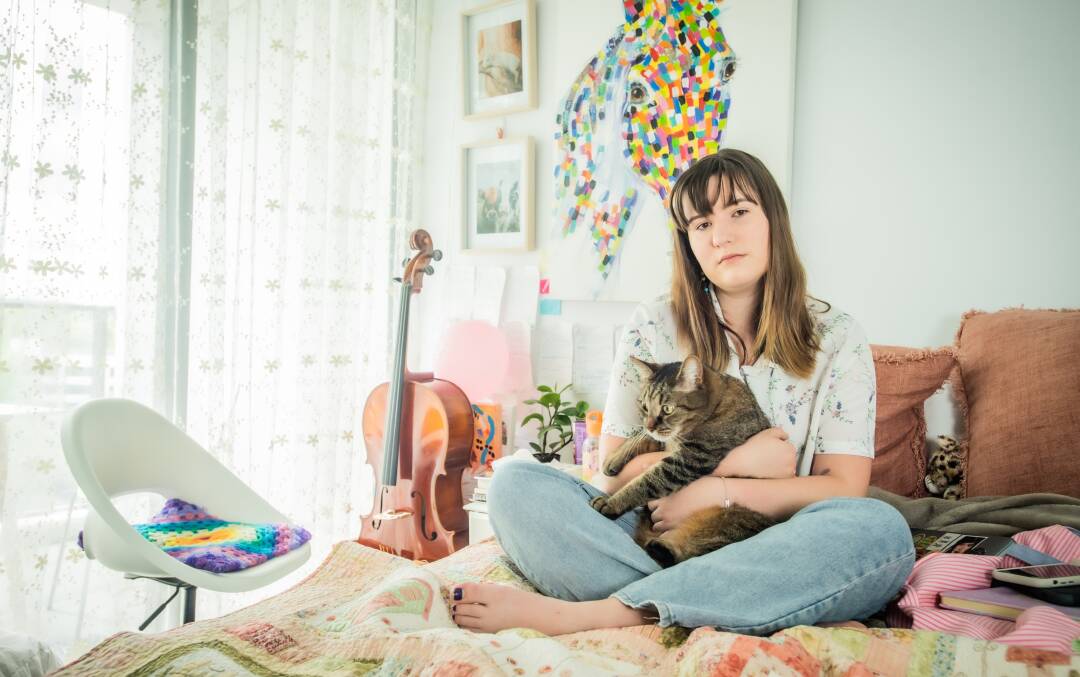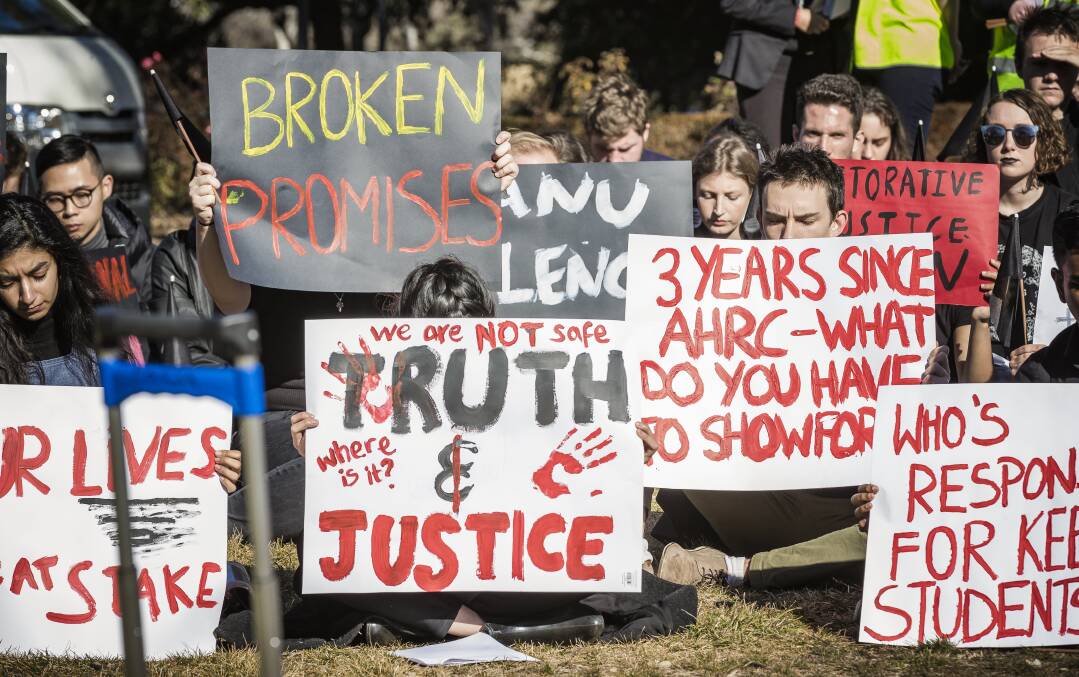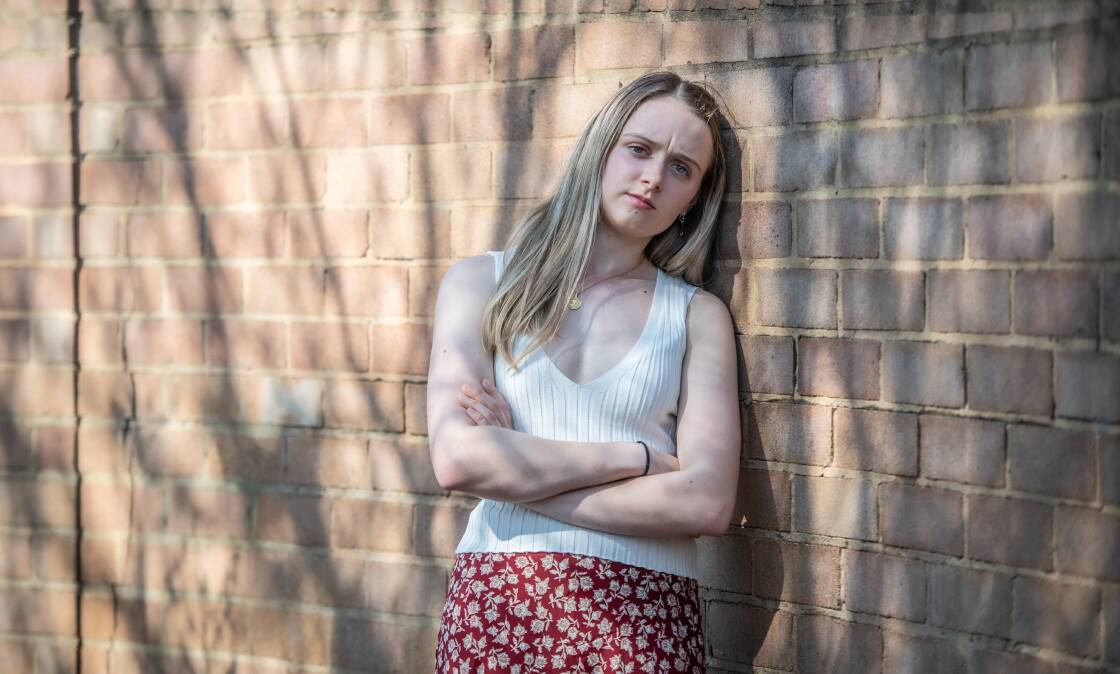Australian National University students have shared harrowing experiences of sexual assault and harassment in campus accommodation, prompting calls for the Universities Accord to have a greater focus on student safety.
Students reported drink spiking, stalking, sexual assault and harassment in universities in an anonymous survey conducted by the STOP Campaign.
The survey collected 52 responses from students, staff and alumni from across Australia, but a quarter of the responses directly related to experiences connected to the ANU.
One respondent said they had to intervene when a friend had her drink spiked at an academic dinner and the alleged perpetrator was trying to take her back to her room.
Another said a man involved in a sexually explicit scavenger hunt, which listed having sex with a particular person's girlfriend and placing semen in communal hand sanitiser, was later made the president of a hall.
"There have been many instances (3) where I have been sexually assaulted on campus," one respondent said.
"For instance, once I had someone grab me and try to drag me into his room ... I brought it up to one of the student wellbeing teams at the ANU, who told me it doesn't count as assault. I refused to report anything after that."
Some said they failed their course or left university after an incident of sexual assault.
Others spoke of unclear processes when reporting allegations or that issues were not followed up.
"I filled out an ANU form to report my sexual assault within 6 months of the incident," a respondent said.
"I never heard back from the ANU, and this stuck with me. I felt like the ANU didn't care, and that they had presented a service that they couldn't even run effectively."

Former ANU student Indy Shead's mental health condition was exacerbated by an alleged sexual assault involving another student.
She did not report the alleged sexual assault as she did not have confidence that it would result in any action and did not wish to recount the incident to staff.
The residential colleges encouraged students to speak to senior residents about problems, but Ms Shead said this was problematic as they were fellow students with limited training in mental health support and handling of sexual assault and harassment.
"A 21-year-old shouldn't be in charge of 50 people's mental health with absolutely no qualifications," she said.
"I know that a lot of my friends were very overwhelmed with the amount of disclosures or mental health [incidents] that they had to deal with and that they weren't trained besides a sort of one-hour chat."
An ANU spokesman said the university was committed to providing a safe, respectful and inclusive environment.
"All ANU students are supported to safely report and disclose alleged incidents of student misconducts. Reports lead to formal investigations," the spokesman said.
"Students who disclose are provided with appropriate and specialist pastoral care and clinical support by the university. The university also has a duty of care to support all students involved in student misconduct cases."

The Universities Accord interim report listed improving student wellbeing and safety as an area to consider in the broad review of higher education.
Former ANU student and founder of the STOP Campaign Camille Schloeffel said student safety should be one of the accord's top priorities.
"I feel like a lot of these instances, particularly ones where intoxication is involved, could have been prevented if there was more adequate education," Ms Schloeffel said.
"I think universities and particularly residential halls could play a massive role in doing some of that education and prevention work ... because some of these experiences are their first ever sexual experiences."
Ms Schloeffel said changing hiring practices could be a quick fix so that people with counselling, social work, psychology and community work backgrounds were employed in the halls rather people with accommodation management backgrounds.
"The ANU completely fails to do that. The people that are in a lot of those positions are not equipped to be in those positions, and that's why they come for six months and then they burn out and leave," she said.

Third-year ANU student and STOP Campaign member Nuria Olive said when she moved into campus accommodation in 2021, the students were required to do an online module and attend an in-person session about respectful relationships.
"You never are expected to attend that session again the following year or the year after, which I think is a bit ridiculous. I honestly think that you should be attending that session every year when it happens," Ms Olive said.
While there are flyers around the residences pointing to the university's sexual misconduct policy, she said it was still unclear what the process was for disclosing and reporting incidents and what consequences the perpetrators could face.
"I would honestly say that everyone living in a residential hall on ANU campus can say that they know someone who has been who has experienced sexual violence," Ms Olive said.
The ANU spokesman said the university launched a multi-million dollar student safety and wellbeing plan in July 2022.
"The plan includes significant investments in staffing in ANU residences, recruiting new case managers, improving our education programs and further embedding a zero-tolerance approach in ANU culture, including policies, language, training and disciplinary procedures," the spokesman said.
The online module and one hour face-to-face workshop for new students was updated this year and three halls participated in a pilot of three two-hour workshops.
The spokesman said a range of training courses were in place for staff and students on understanding sexual violence and bystander intervention, responding to disclosures of sexual violence, and LGBTIQA+ Ally training.
A recent Senate inquiry into sexual consent laws recommended a new independent taskforce hold universities to account on sexual violence and called for a review into the Tertiary Education Quality and Standards Agency's response to sexual violence on university campuses.
ANU vice-chancellor Brian Schmidt told The Conversation's Politics with Michelle Grattan podcast the taskforce proposal was "not a bad idea" but that universities should have the final say on what actions should be taken.
"I want to demonstrate to it that I am doing an outstanding job. I do not want to be dictated what to do because that will be a lowest common denominator," Professor Schmidt said.
- If you or someone you know is impacted by sexual assault or family violence, call 1800RESPECT on 1800 737 732. In an emergency contact 000.







